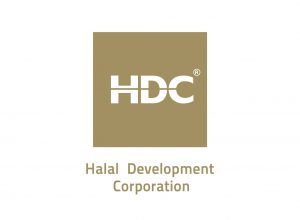The term ‘Halal’ typically refers to actions or things that are consented by the Muslim Shariah law. Halal cosmetics are described as skin and body care products that do not use materials/ingredients banned in the Muslim society.
The manufacturing of Halal cosmetics is seen as a sort of innovation in the skincare and cosmetics industry. It has introduced new technologies as well as internal and external methods in the areas of R&D, formulation, and production. The overall scope of halal compliance is much higher though, as it covers all aspects of manufacturing, starting from the sourcing of materials to production, transport, cargo management, warehousing, and retail.
The ‘Halal’ concept is increasingly becoming sophisticated. Ten years ago, the awareness about Halal was quite limited and was mainly focused on meat-based products. Today, it is concerned with a broader range of consumer products and concepts.
Increased consumer awareness but lack of standardization
There is a noticeable increase in the levels of consumer consciousness with regards to the use of ingredients in skincare and cosmetics products. This has resulted in an increase in the demand for Halal cosmetics too.
Consumers are increasingly willing to pay a higher price for such goods because their ethical beliefs are given due consideration. This change in consumer approach has encouraged the traditional beauty market to focus on creating products which are halal-certified. Today, a visit to super market for halal compliant personal care products can offer a range of items including shampoos, soaps, shower gels, conditioners, lotions, toners, cleansers, creams, perfumes, makeup, toothpaste, and powders.
One of the major factors that are driving this change is the increasing percentage of the Muslim population acquiring higher levels of education, which has resulted in a shift towards spending on high-quality and safe products. Muslim consumers have progressed to seek halal integrity in pharmaceuticals, processed beverages and foods, insurance, leather products, entertainment, and travel. A large section of the Islamic population is slowly finding a place for various cultural and religious aspects in their daily lifestyle.
In general, the millennials are showing an increased preference for natural, organic, and vegan products. Halal cosmetics and skincare products are perceived to be safer by all consumers – both Muslim and non-Muslim – because of the nature of the process and raw materials used in manufacturing and the strict certification guidelines. This has been another major factor driving the growth of the global halal cosmetics industry.
Halal certification allows Muslims to identify genuine halal products and thereby live according to their religious virtues. However, the rules relating to the halal ingredient authenticity vary from country to country. This factor may restrict some companies to enter the global halal cosmetics market. It is difficult for cosmetic manufacturers to get a legitimate halal certification, acceptable across all Muslim-dominant nations. The lack of standardized global guidelines for manufacturing halal cosmetics is a challenge for companies interested in tapping this emerging market opportunity.
Market Potentials, Worldwide
Globally, the demand for halal cosmetics at present is estimated to be around $20 billion. The market is growing fast, as halal products are swiftly making their way into the mainstream consumer markets. APAC region seems to be a fast growing market for halal cosmetics, accounting for almost 75% of the demand. Countries with large Muslim population such as Malaysia, Indonesia, India, Bangladesh, and Pakistan are expected to have a high demand for halal cosmetics as their socioeconomic conditions of are improving considerably.
Malaysia has been investing significantly in various emerging halal product segments, targeting to evolve as the global hub for halal industries including halal cosmetics. Jabatan Kemajuan Islam Malaysia or JAKIM has received worldwide recognition as a credible halal certification agency. The Middle East is another important natural market considering the high-income levels of the countries in the region.
More companies are investing in the development of halal-compliant cosmetics, including MNCs. For instance, Colgate Palmolive has added halal toothpaste to their product portfolio. Several small and medium companies in APAC region are also emerging as key players in halal cosmetics markets.



